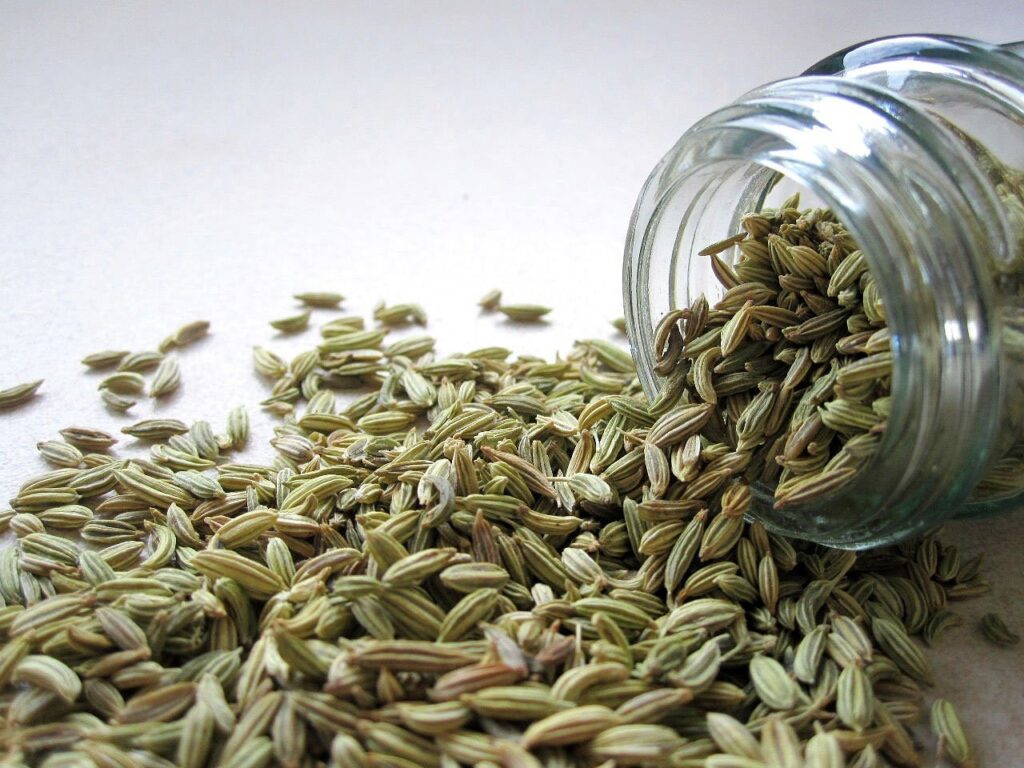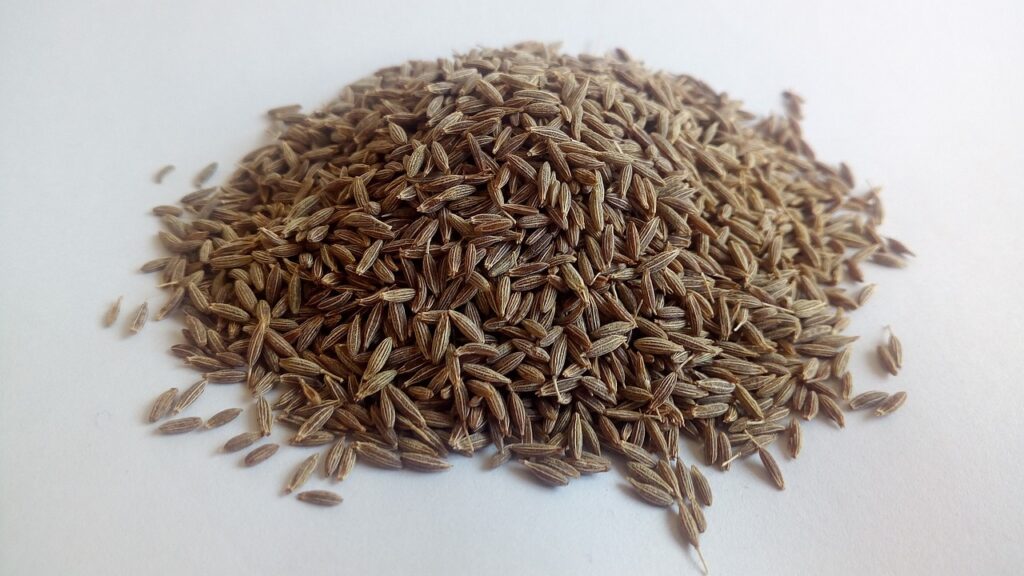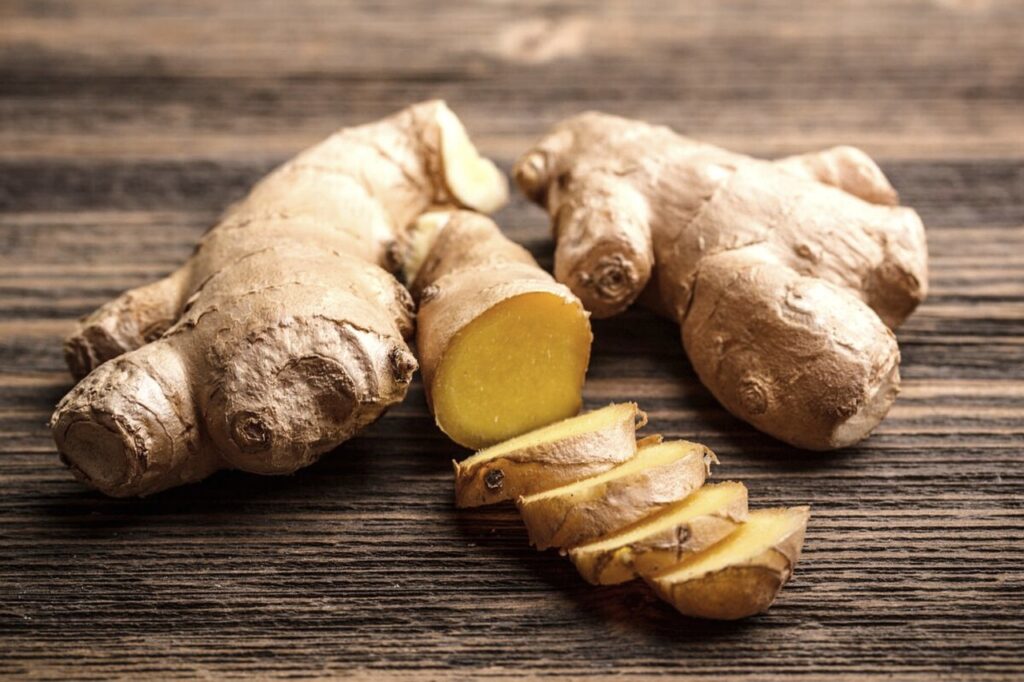In the quest for holistic well-being, Ayurveda, the ancient Indian system of medicine, has long been a guiding light. Among its myriad treasures are herbs renowned for their remarkable ability to enhance digestive health. In our exploration of natural remedies, we delve into the world of Ayurveda to uncover the “Top 5 Ayurvedic Herbs to Improve Digestion.” From the soothing properties of fennel to the antibacterial prowess of ajwain and the digestive prowess of cumin, ginger, and aloe vera, these herbs offer a time-tested approach to fostering a healthy and balanced digestive system. Join us on this journey as we unveil the secrets nature has provided to nurture our digestive well-being.
Considerable emphasis is placed on maintaining healthy digestion, and Ayurveda recognizes several potent herbs renowned for their digestive benefits. Today, we will explore the five best Ayurvedic herbs.
1. Fennel Seeds (Sauf)

First on the list is fennel, also known as “sauf” in Hindi. While commonly consumed after meals, fennel seeds contain a compound called anethole, which aids in relaxing the muscles in the digestive tract. This property reduces bloating and indigestion, making it a stellar herb for overall digestive health. Consider incorporating one teaspoon or about 5 grams of dried fennel seeds into your routine after lunch for enhanced digestion.
2. Carom Seeds (Ajwain)
Next up are carom seeds, also known as “ajwain.” These tiny seeds boast a component called thymol, which not only possesses antibacterial properties but also contributes significantly to digestion. Ajwain can alleviate stomachaches by expelling gas and improving overall digestion. Create ajwain water by boiling one teaspoon of ajwain seeds in one cup of water, allowing it to sit overnight. In the morning, mix the water with honey and consume it on an empty stomach to find relief from digestive issues.
3. Cumin Seeds (Jeera)

The third herb is cumin, or “jeera.” Commonly used in everyday cooking, cumin seeds contain essential oils that stimulate digestive enzymes crucial for the digestion process. Additionally, cumin exhibits antibacterial and anti-inflammatory properties, making it an ideal choice for managing digestive disorders such as indigestion and flatulence. Incorporating half a teaspoon of cumin seed powder into your daily cooking helps prevent digestive issues.
4. Ginger (Adrak)

Ginger, the fourth herb on our list, is a favorite spice for many. Ginger root houses powerful anti-inflammatory and antioxidant compounds that can soothe an upset stomach and reduce nausea. Beyond its great taste, ginger is beneficial for gut health. Add crushed or grated ginger to your daily cooking, detox drinks, or tea. However, avoid ginger if you have a bleeding disorder or are taking blood-thinning medication.
5. Aloe-vera

Lastly, we have aloe vera. The gel-like substance within its leaves is soothing to the digestive tract, making it a good remedy for inflammation, irritation, acid reflux, and ulcers. Prepare fresh aloe vera juice at home by blending the clear gel inside the leaf with water. You can enhance the flavor by adding lemon, honey, or salt. Remember to consume it in small doses, perhaps one tablespoon, half an hour before meals, as excessive aloe vera may lead to unwanted diarrhea.
These are our top five Ayurvedic herbs for gut health. Always remember that these herbs work best when complemented by a holistic approach to health, including a balanced diet, regular exercise, and a calm state of mind. Namaskar!



